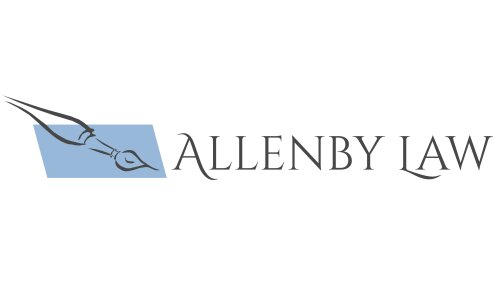Best Tax Increment Financing Lawyers in Fort McMurray
Share your needs with us, get contacted by law firms.
Free. Takes 2 min.
List of the best lawyers in Fort McMurray, Canada
About Tax Increment Financing Law in Fort McMurray, Canada
Tax Increment Financing (TIF) is a financial tool used by municipalities in Canada, including Fort McMurray, to encourage economic development and revitalization in specific areas. Through TIF, incremental tax revenues generated by increased property values within a designated TIF district are reinvested into that area to support improvements such as infrastructure, public services, and community projects. TIF aims to stimulate private investment, combat urban decay, and enhance community welfare without increasing taxes elsewhere.
Why You May Need a Lawyer
Engaging a lawyer for matters related to Tax Increment Financing may be necessary in several situations:
- Understanding the Complexities: TIF involves intricate financial and legal frameworks that may require professional interpretation.
- Negotiating Agreements: Lawyers can help negotiate and draft agreements between the local government and private developers.
- Compliance and Regulations: Ensuring that your project complies with local, provincial, and federal regulations, as well as TIF-specific guidelines, often requires legal expertise.
- Dispute Resolution: If disputes arise regarding TIF arrangements, legal representation is crucial for resolution.
- Maximizing Benefits: Legal advice can help ensure that investments and benefits from TIF are maximized effectively and efficiently.
Local Laws Overview
Tax Increment Financing in Fort McMurray is governed by both municipal policies and Alberta's provincial regulations. Key aspects include:
- Designation of TIF Areas: The municipality designates specific areas as TIF districts based on criteria such as the need for economic development and potential for increased property values.
- Financing Structure: TIF financing is structured to capture the incremental property tax revenue resulting from assessed value increases post-development.
- Eligible Projects and Uses: Funds from TIF can be allocated to infrastructure improvements, public amenities, environmental remediation, and other developments that support community growth.
- Timeframes and Limitations: There are specific time limits on the duration a TIF district can remain and statutory restrictions on financing provisions.
Frequently Asked Questions
What exactly is Tax Increment Financing?
Tax Increment Financing is a method allowing cities to promote economic development by reinvesting tax base increases from new developments in designated areas.
How is a TIF district established?
A TIF district is typically established through municipal ordinances, following studies to identify areas that would benefit from redevelopment initiatives.
Who benefits from a TIF project?
Benefits often include improved infrastructure and public amenities for the community, as well as economic growth for local businesses and increased returns for investors.
Do TIF projects raise my property taxes?
TIF itself does not increase property taxes; instead, it utilizes the natural increase in property tax revenues from higher valuations in developed areas.
Can TIF be used for residential projects?
While TIF is primarily used for commercial and infrastructure projects, certain residential developments, especially those enhancing public welfare, may also qualify.
Are there any financial risks with TIF investments?
Like any financial mechanism, TIF carries some risk, particularly if projected increases in property values do not materialize or if there is insufficient buy-in from developers.
Is public input required when creating a TIF district?
Public meetings and consultations are often part of the process to inform residents and address concerns related to TIF projects.
Can a TIF district be terminated early?
Yes, if project goals are met early or financing constraints change, a district can potentially be terminated ahead of the planned schedule.
How does TIF affect local services like schools?
Funds typically diverted for TIF projects can impact the revenue streams of local services, so municipalities often include provisions to mitigate such effects.
Is legal representation necessary for participating in TIF initiatives?
While not mandatory, legal advice is highly recommended to navigate the complexities of TIF agreements and ensure compliance with all regulations.
Additional Resources
For further guidance and support around TIF in Fort McMurray, consider these resources:
- Regional Municipality of Wood Buffalo: The local government responsible for TIF policy implementation. Useful for official documentation and procedural guidelines.
- Alberta Municipal Affairs: Provides a provincial perspective on TIF regulations and resources for communities seeking economic revitalization.
- Canadian Institute of Planners: Offers insightful publications and professional advice related to urban development financing strategies.
- Local Chambers of Commerce: Network with business leaders to discover potential opportunities and impacts of TIF in your community.
Next Steps
If you require legal assistance with Tax Increment Financing in Fort McMurray, consider taking the following steps:
- Research and select a law firm or attorney specializing in municipal finance or real estate law.
- Gather all related documents, including property assessments, development proposals, and any prior communications with municipal authorities.
- Schedule a consultation to discuss your specific needs and gain preliminary insights into your TIF project viability and legal obligations.
- Explore any alternative financing or development incentives that may complement or substitute TIF, with the guidance of legal counsel.
Taking informed and timely action can help you successfully navigate the TIF landscape, ensuring compliance and maximizing the benefits of your development initiatives.
Lawzana helps you find the best lawyers and law firms in Fort McMurray through a curated and pre-screened list of qualified legal professionals. Our platform offers rankings and detailed profiles of attorneys and law firms, allowing you to compare based on practice areas, including Tax Increment Financing, experience, and client feedback.
Each profile includes a description of the firm's areas of practice, client reviews, team members and partners, year of establishment, spoken languages, office locations, contact information, social media presence, and any published articles or resources. Most firms on our platform speak English and are experienced in both local and international legal matters.
Get a quote from top-rated law firms in Fort McMurray, Canada — quickly, securely, and without unnecessary hassle.
Disclaimer:
The information provided on this page is for general informational purposes only and does not constitute legal advice. While we strive to ensure the accuracy and relevance of the content, legal information may change over time, and interpretations of the law can vary. You should always consult with a qualified legal professional for advice specific to your situation.
We disclaim all liability for actions taken or not taken based on the content of this page. If you believe any information is incorrect or outdated, please contact us, and we will review and update it where appropriate.









